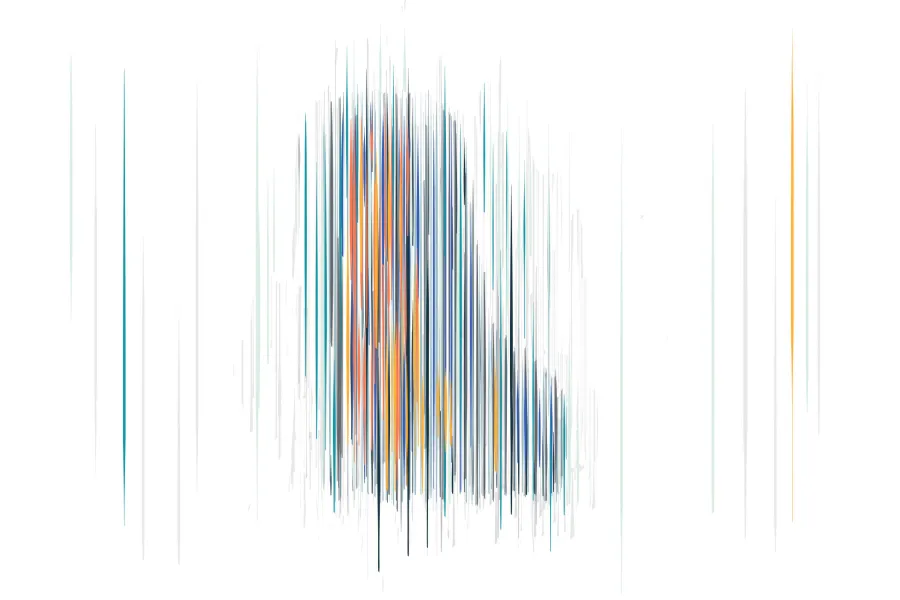Please silence your electronic devices.
Photography, video, or recording of any part of this performance is prohibited
Program
J. S. Bach 1685-1750
Passacaglia and Fugue in C Minor, BWV 582 ca. 1715
About the Program
My first encounter with this monumental work was in my high school youth orchestra, playing bassoon in the 3D/Cinemascope Stokowski arrangement. As a mere pianist, my long-time wish has been to play it with just two hands – a goal thwarted by not having two legs working busily along with arms, fingers and various organ registration stops.
Apparently, many other pianists have had the same desire. I’m aware of at least a dozen previous solo piano transcriptions. To me, they’re all more-or-less unsatisfactory (some are quite unplayable!). I find much too much overly rigorous adherence to the pedal line and specifics of voice-leading and keyboard registers; but most of all, the extravagant use of octave-doublings and other unnecessary pianistic gymnastics. They all seem to have the massive sonority of a 19th-century Romantic organ as the model for the virtuoso pianist.
But musicologists have dated this work as written around 1715, when Bach was at Weimar. Although many of his organ works come from that period, at that time the organ at the Weimar chapel was smallish (originally built in 1658, with updates in 1714). So clearly, the sound that we’ve come to expect in this work isn’t what Bach would have heard.
But, more than any other composer, Bach’s music can speak in virtually any transcribed language. We have Organ Chorales sung by the Vienna Boys’ Choir. The Art of Fugue for brass quintet. The Swingle Singers. Liszt’s piano arrangements. Modern orchestras (e.g. Stokowski’s version). Add to that list performances of the piece played on a mammoth modern organ like UT’s Visser-Rowland – in a way, these are also “transcriptions.”
In considering where any given arrangement falls along a scale of “authenticity”, it's revealing to compare what Busoni did with the violin Chaconne – a super-hyped pianistic extravaganza – vs. the austerity of Brahms’s left-hand version.
In this transcription, my goal has been to replicate the original organ score as much as possible — it’s written on three staves, without added indications of tempi, dynamics, articulations or hand distributions. Any keyboard player of Bach will recognize the “look” of an Urtext edition of a Bach Fugue.
The few editorial modifications I’ve made (and the many rhythmic liberties I take in performance) are interpretive choices that convey the way I feel the musical narrative of the piece. (My hope is that very few of these will cause a listener’s reaction to be ‘raised eyebrows/severe frown/indignant muttering…!). The sparsity of notation in my score allows a performer many options regarding musical style and character.
So, many decades later, I am finally able to play this magnificent work with just two hands (and pedals, but of a different sort!) in a manner that I believe comes closer to Bach on the “authenticity” scale.
– Gregory Allen
About the Artist
Gregory Allen

Gregory Allen, professor of piano at The University of Texas at Austin, was the Grand Prize winner of the 1980 Arthur Rubinstein Competition in Tel Aviv; he also won top honors at the Queen Elisabeth, Gina Bachauer and Washington International Competitions. He has appeared with numerous major orchestras and has adjudicated many prestigious competitions. Chamber music has always been a large part of professor Allen’s career. He has collaborated with a number of well-known String Quartets; as a founding member of the Chamber Soloists of Austin, he programmed the premieres of approximately 40 new works. The group was invited by the USIA to an extensive tour of South America in 1992. To commemorate the centennial of Arthur Rubinstein’s birth in 1987 Allen researched and recorded three albums of music written for and dedicated to Rubinstein. He also recorded the complete piano works of Joaquín Rodrigo, in collaboration Anton Nel, fellow professor of piano at the Butler School of Music. Recently Allen has completed new arrangements of both Brahms String Sextets for Piano Trio; and a transcription for solo piano of Bach's Passacaglia and Fugue for organ. Allen’s major teachers include John Perry, Jerome Lowenthal, and Leon Fleisher. He has served on the piano faculty at UT Austin since 1973.
Upcoming Events
ANDREW BROWNELL, piano
Monday, October 6, 2025, 7:30 p.m.
Bates Recital Hall
SYMPHONY ORCHESTRA
Wednesday, October 15, 2025, 7:30 p.m.
Bates Recital Hall
WILHELM MAGNER, viola | JONATHAN GUNN, clarinet | PATTI WOLF, piano
Monday, October 20, 2025, 7:30 p.m.
Bates Recital Hall
EBONEE THOMAS, flute | WILHELM MAGNER, viola | EMILY LEVIN, harp
Monday, October 27, 2025, 7:30 p.m.
Bates Recital Hall
SCHUBERTIADE
With Anton Nel & Friends
Monday, November 3, 2025, 7:30 p.m.
Bates Recital Hall
Event Details
Free admission


